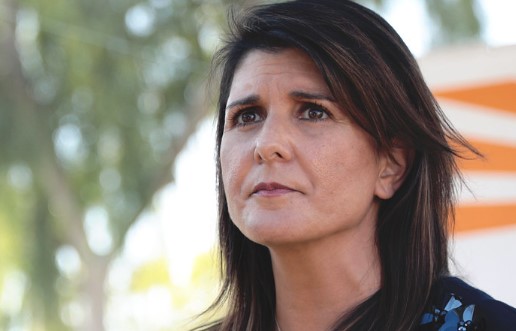In a significant development within the Republican Party, Nikki Haley announced the suspension of her presidential campaign, effectively paving the way for Donald Trump to become the GOP’s nominee for the 2024 presidential election. In a speech delivered on Wednesday morning, shortly after the final Super Tuesday results were in, the 52-year-old former Governor of South Carolina and UN Ambassador under Trump’s administration addressed her decision to withdraw from the race. While Haley extended her congratulations to Trump, she stopped short of offering him her endorsement. Instead, she placed the onus on Trump to gain the support of her backers and those within the party who have yet to rally behind him.
This announcement came as a pivotal moment in the Republican primary race, following a Super Tuesday where Haley’s performance fell short of expectations. With only Vermont as a victory amidst losses in 14 other states, Haley’s campaign faced an uphill battle against Trump’s dominant lead.
In response to Haley’s exit, President Joe Biden extended an invitation to her supporters to consider backing his campaign, highlighting the opportunity for common ground on crucial issues such as American democracy, the rule of law, and international relations despite potential differences in other areas.
Prior to Super Tuesday, Haley had maintained that she would continue her campaign as long as she remained competitive. However, the reality of the electoral landscape and her campaign’s performance led to her withdrawal. This decision underscored the formidable challenge of contending with Trump’s widespread support among the Republican base.
Despite her campaign’s early optimism and Haley’s strong showing in the Washington, D.C., primary, her campaign struggled to gain the momentum necessary to mount a serious challenge to Trump. Her departure from the race signals a consolidation of support within the GOP behind Trump’s candidacy as the party prepares for the general election against Biden.
Haley’s campaign had emphasized her appeal to moderates and college-educated voters, demographics she argued would be crucial in the general election. However, the campaign was unable to translate this appeal into broad-based support within the party’s primary electorate.
As the GOP looks toward the 2024 election, Haley’s exit and the subsequent rallying of Republican leaders and voters around Trump underscore the party’s focus on unifying to recapture the presidency. Meanwhile, the Democratic response to Haley’s suspension, particularly from Biden, indicates the beginning of a broader appeal to disaffected Republicans and independents in anticipation of a contentious general election campaign.

